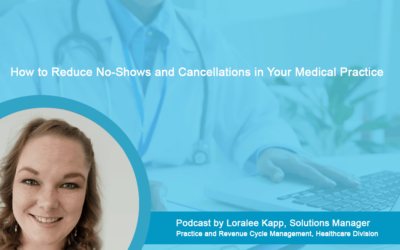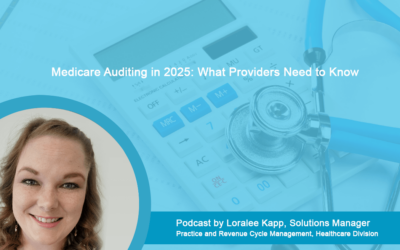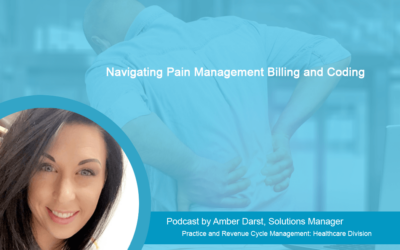Outsource Strategies International (OSI) is a reliable medical billing company providing strategic and value-added medical billing and coding services for medical and dental practices and other healthcare entities.
In today’s podcast, Meghann Drella, one of our Senior Solutions Managers, explains how to code for dental caries using ICD-10 medical codes.
Listen now!
Read Transcript
Hello and welcome to our podcast series.
My name is Meghann Drella and I’m a Senior Solutions Manager here at Outsource Strategies International (OSI). Today I’ll be discussing with you how to code for dental caries using ICD-10 medical codes.
Dental caries are cavities or holes in the teeth. Dental caries signify the permanent destruction of tooth enamel – the hard, outer layer of the teeth that develop into tiny openings or holes. Also called tooth decay or cavities, dental caries are caused by a specific, sticky film of bacteria called plaque that forms on the teeth. They produce acid that destroys the tooth’s enamel and the layer under it, the dentin. When you eat or drink certain foods with sugar content, the bacteria on your teeth breaks them down and produces acids that have the ability to seriously damage the hard tissues of your teeth. The result is the formation of dental caries or cavities. If left untreated, dental caries can get larger and affect the deeper layers of the teeth resulting in severe tooth ache, infection and tooth loss. Regular dental visits and good flossing habits can help protect the teeth from cavities and decaying.
Dental treatments provided by dentists may be reimbursable and the documentation must be accurate for receiving the compensation due. As medical billing and coding for dental disorders involves several complexities, physicians must have adequate knowledge and business systems in place to document the procedures performed in the medical records.
Tooth decay or caries is a common disorder affecting most people at some point in their life. Although common among children and young adults, the condition can affect the teeth at any age. Prevalence of mouth plaque, cavity formation, tooth fracture or tooth abscess, gingivitis and periodontitis, inadequate brushing, and frequent unhealthy snacking habits are some of the most common causes of this condition. Typically, dental caries can be spotted on two areas of the teeth –
Occlusal caries – which form on the topmost part of the tooth where food particles repeatedly come in direct contact with the teeth, and
Interproximal caries – which are dental caries that form between the teeth
In the above two locations, bacteria fester and pose a direct risk to oral hygiene. If the teeth and the surrounding areas are not cared for properly, the bacteria will begin to digest the sugars left over from the food in the mouth and convert it into acids as a waste product. These acids demineralize the enamel on the teeth and form tiny holes – the first stage of dental caries.
The signs and symptoms of cavities vary, depending on their extent and location. In most cases, the early stage of dental caries may not show any specific signs or symptoms. However, as the tooth decay gets larger, it may cause certain signs and symptoms like toothache, tooth sensitivity, visible holes or pits in your teeth, pain when you bite, mild to sharp pain and brown, black or white staining on any surface of a tooth. These signs are usually associated with advanced tooth decay and therefore require immediate attention from a dental specialist.
In most cases, dentists detect tooth decay by examining your mouth and teeth and asking about tooth pain and sensitivity. Dentists may probe your teeth with dental instruments to check for soft areas. In addition, dental X-rays can show the extent of cavities and decay. Regular checkups can identify the cavities and other dental problems at an early stage before they cause troubling symptoms or lead to more serious problems. The sooner you seek care the better will be your chances of reversing the earliest stages of tooth decay and preventing its progression.
Dental medical billing and coding can be a complex procedure. While documenting various dental conditions like dental caries, dental specialists need to report all the aspects such as symptoms, diagnosis screening tests, and treatment procedures carefully using the correct medical codes. Dentists or periodontists who perform dental surgery need to submit accurate documentation that meets the payer guidelines.
Dental caries or cavities can be easily prevented by practicing a systematic oral hygiene regimen. This includes regular dental checkups in order to identify pre-existing conditions before they lead to more serious issues. Some of the possible steps to prevent the occurrence of dental caries include –
- Brushing your teeth
- Cleaning between your teeth daily with floss or interdental cleaner
- Reducing the intake of sugary or starchy foods during the day
- Visiting your dentist regularly for professional cleanings and oral examination
Medical coding for dental disorders can be a challenging process. But please remember that documentation as well as a thorough knowledge of payer regulations and guidelines is critical to ensure accurate reimbursement for the procedures performed.
Thank you for joining me and stay tuned for my next podcast!



